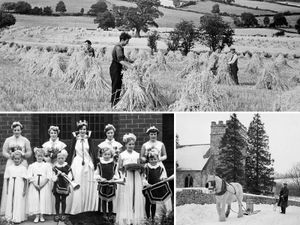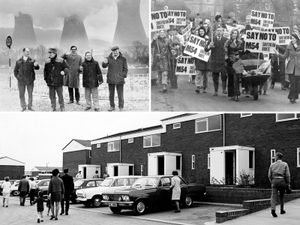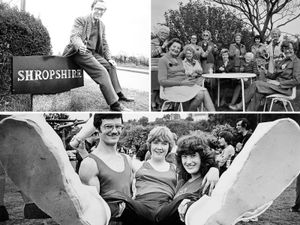Portillo's face of defeat was top TV moment
Every face tells a story, and Michael Portillo's face was a picture.
The night of the 1997 general election brought with it many moments to last long in the memory, but one above all has become associated with the humiliation of the Tories.
As the result in Enfield Southgate was declared, cabinet minister Portillo, who already knew he had lost, composed himself. He did not want to look sad, he explained later, but wanted to maintain his dignity. He ended up with frozen features as he took it on the chin.
His victorious Labour opponent Stephen Twigg was equally shocked. Seeing him looking ashen, Portillo had even told him to cheer up.
Twigg overturned a Tory majority of 15,563. As the result was about to be declared, he too tried to keep a neutral expression, but broke out into the broad grin of somebody who could hardly believe it himself.
It has become known as the "Portillo moment," which has been voted among the top TV moments of all time by viewers. The Liberal candidate had a revealing comment: "In a way, things seem more real on TV than in real life. It's almost like we had missed the drama by being there."
For Labour, it was a highlight in a dramatic and sensational night. After Portillo, they knew they had done it. Eighteen years of hurt was coming to an end.
Tony Blair, a new, young, and fresh Prime Minister who offered hope for the future, had a wide grin as he breezed into 10 Downing Street.
Labour had had a landslide, gaining an overall majority of 179 seats. It was bigger even than Labour's famous victory in 1945. In fact, it was the biggest majority held by any Government since 1935.
It was a vindication for those behind the reinvention of the party, rebranding it as New Labour, loosening the ties with the unions and planting its flag on the middle ground of politics, to put the squeeze on the Tories. New Labour built bridges with business, and even won over media mogul Rupert Murdoch.
In contrast the Tories had been in office for so long that they had the appearance of a party tired of the burdens of power, and riven by bickering and internal strife, particularly over the vexed issue of Europe.
A "back to basics" campaign championed by Prime Minister John Major, evoking a nostalgic return to traditional British values, was used as a weapon against the Tories when it emerged that some of their own MPs were not completely squeaky clean.
As the country went to the polls, they could point to a strong economy. But the electorate had had enough of them.
May 1, 1997, was a good night too for the Lib Dems, under leader Paddy Ashdown. They won 46 seats, their highest total since 1929.
John Major, whose wife Norma had been born in Shropshire - at Much Wenlock cottage hospital - gave a final statement outside 10 Downing Street.
Then he went to The Oval to watch the cricket.





